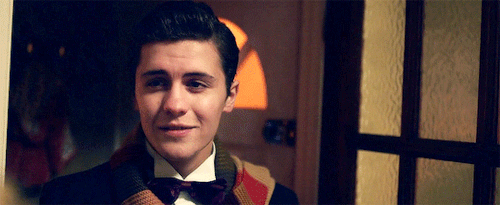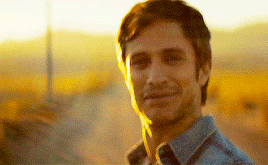part of me, part of you [Blackston/Gentian]
Feb 7, 2020 0:38:00 GMT -5
Post by marguerite harvard d2a (zori) on Feb 7, 2020 0:38:00 GMT -5

Blackston Hope
Blackston was used to having doors slammed on his face. There were his parents, who’d been all too happy to see him free up a bedroom for the sake of his other siblings, that he remembered the sound of them slamming the front door when he’d made up his mind to go. Aunty Birdie, who’s slipshod life meant even after all the dishes he’d washed and all the times he fed pistachio (or had tea at the ready), she preferred loneliness to his company, setting him out on the street. And then there were the people of eight, the men and women who looked at him crossways when he came door to door, asking for alms for the less fortunate.
Sometimes they’d let him talk about how life was more than just one day to the next, that in this life they may have suffered and lost, but the next one could be all the better. Or that there was a being looking down on them with hope and grace that judged them on how they could be (even as hard as their lives were). And sometimes he’d simply ask if they had anything to spare, because he wanted to show that kindness could come from within, with nothing more than the choice to give.
He would smile through each disappointment. Warmer days of summer where he’d have his white buttoned down, short sleeved, pressed and fancy with his khaki shorts (he quite liked how he looked, staid but free). Through the sunshine of autumn, as the leaves changed green to crimson. And onward through the chill of winter, even as the snow started to fall in the streets and over rooftops. He liked to watch the smoke that would pour out of chimneys, or the way snow could wipe a whole street clean overnight.
Someday, he thought, his world would start anew. Awash with folks who listened when he spoke. People who’d stay in his life less out of obligation and more because they wanted to hear what he had to say. He thought it would be like that beautiful white across pavement and stone, unspoiled and ready for fresh footsteps.
It wasn’t that he didn’t left himself get sad time and again. Once, he’d spent a whole afternoon in his room at Birdies to cry. He’d say it was because one of the boys called him a freak, or whatever awful word teen boys would use to cut deep as he could. A group of them had chanted it, and followed him on his walk home, round street corners, hollering as though each sentence made them stronger.
He reasoned people (teenage boys in particular) were cruel for the sake of it. The truth was worse: that they’d laughed over his cousin’s deaths, saying that with the reaping coming soon it would be good if they just took him, too. And while he’d heard it before, the unkind and ignoble words all like waves against rocks, it was when they’d said – it’s why your brother went and killed himself, to get away from you that seemed to fracture a part of him that caused the rest to go to pieces.
His father had taught him that their tragedy was something to grow from. He’d be a better person if only he could push through the pain and see the other side. Except for his fifteen years of living, even Blackston could see how faulty this was. Aunt Birdie went to pieces time and time again, tortured by the death of his cousin; what sort of wisdom came from being miserable?
Rather, as he lay on his back with red eyes and a sniffling nose, he remembered that at some point, it’d been written that kindness was a greater teacher than tragedy could ever be. Trauma never mended wounds, it brought about scars. And yet it was kindness that tended the sick. Kindness that made space for the unloved and untouchable. Trauma and tragedy frayed edges and blunted; to genuinely want better for another, and to give oneself fully was a freedom all its own.
It didn’t dull the ache in his chest but after a good long cry and a piece of chocolate, he felt himself more whole again.
Evening came all dark and crisp, and Blackston managed to rouse from his comfortable half nap – the sort where he’d dozed off enough to drool on his pillow – and set about to the darkness of the living room. He wasn’t sure if Birdie had gone out again (she liked to go out often) leaving him alone. He flipped a switch to light up the kitchen and blinked out the sleep in his eyes. Atop the old metal table sat a winter’s wool coat, with silver buttons and a note tucked under one of the arms.
This used to be Gentians. Was cleaning out a box and thought you were big enough for it now.
Blackston hadn’t expected to become emotional over a hand-me-down jacket, but here he was, crying again all over the linoleum. He wondered if Birdie was starting to rub off on him.
It fit like a dream, peacoat snug but comfortable, silver buttons shining in the light. As pistachio eyed him curiously, hunched down in the doorframe at the edge of the living room, he kept turning and staring at himself in various angles.
He wondered how long it had been since his brother had worn the coat. What sort of memories had he made in winter? Did he know loneliness, or did he have more friends than he could count? And had he, in the short time they’d been alive together, thought about what it would’ve been meant if they’d been old together?
The justice building at nighttime was next to empty, but museum’s hours ran late. As opposed to the government workers who left long before a night’s chill set in, the museum still had a stationed peacekeeper to let Blackston inside. He’d skipped past all the trinkets collected from various fallen tributes (Gillian Imberline’s pirate hat in the center of one of the rooms), and went through the double doors to the tribute projection space.
There came a moment when Blackston thought it was wrong, that perhaps he shouldn’t have set upon the temptation to call up a ghost. But he ached through loneliness, and more, curiosity. Perhaps the weeks he’d spent ignoring its existence were more out of fear: that he’d see his brother, ask about his life, and find himself that much worse for it.
“Gentian Hope,” He spoke softly to the machine, and watched the static of the hologram take shape. His breath slipped right out at the sight of his brother, and he stood, stock still and wondering what to say. And so he said the only thing he could,
“It’s good to see you brother. Are you well?”






























































